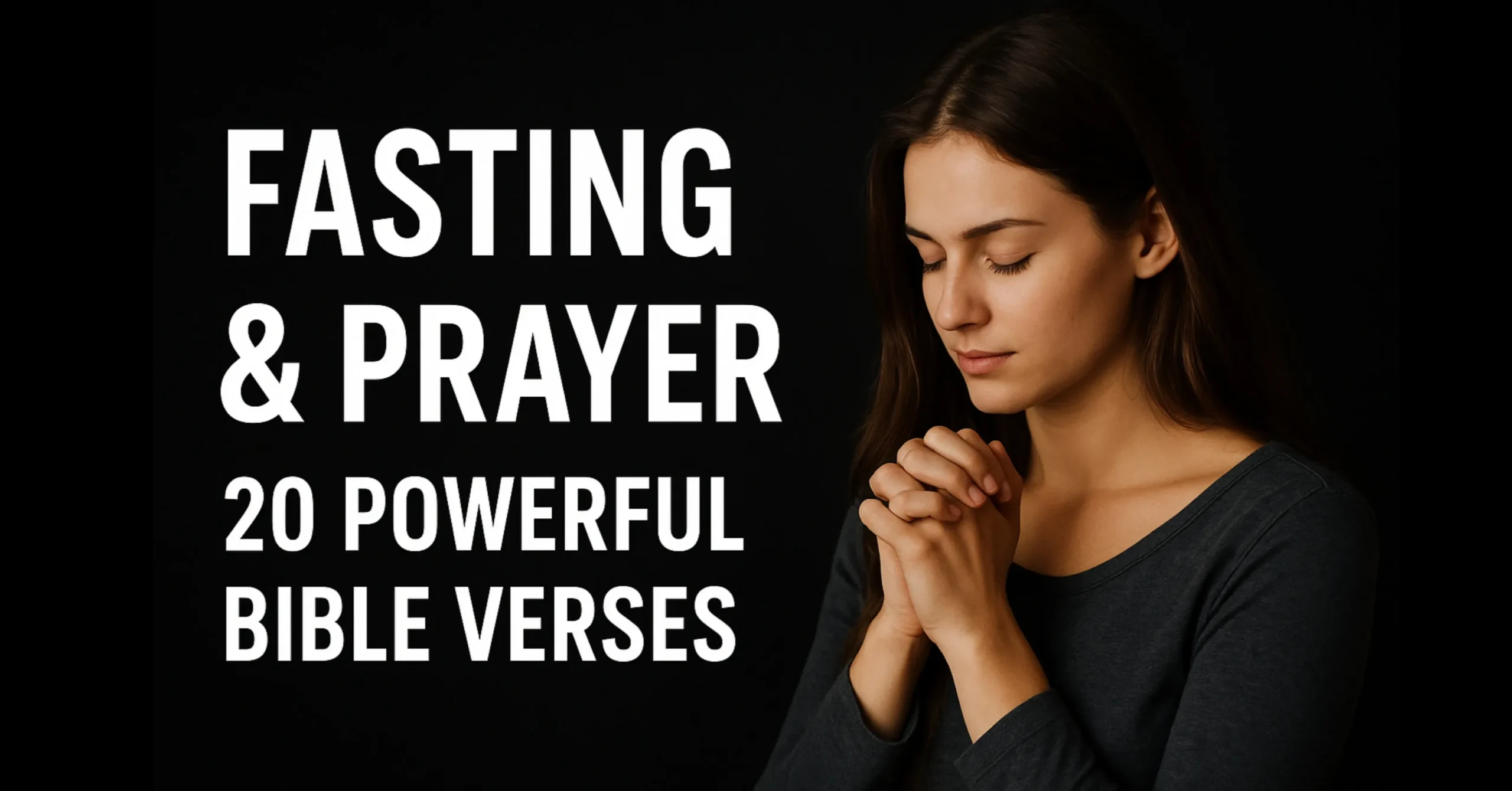What the Bible Says About Fasting & Prayer?
Fasting and prayer are two of the most powerful ways to grow closer to God. Throughout the Bible, we find people who fasted and prayed with a sincere heart, trusting God to guide them. From Moses on the mountain to Jesus in the wilderness, fasting has always been a way to seek God’s presence and strength.
In this post, we’ll look at 20 Bible verses about fasting and prayer that show why these spiritual practices are so important for believers today. Each verse will remind you that fasting is not just about giving up food it’s about focusing your heart completely on God.
If you’ve ever wondered how to fast the right way or what the Bible really says about fasting, this guide will help you understand it step by step. We’ve also added simple lessons from each verse and a free fasting journal you can download to help you on your spiritual journey.
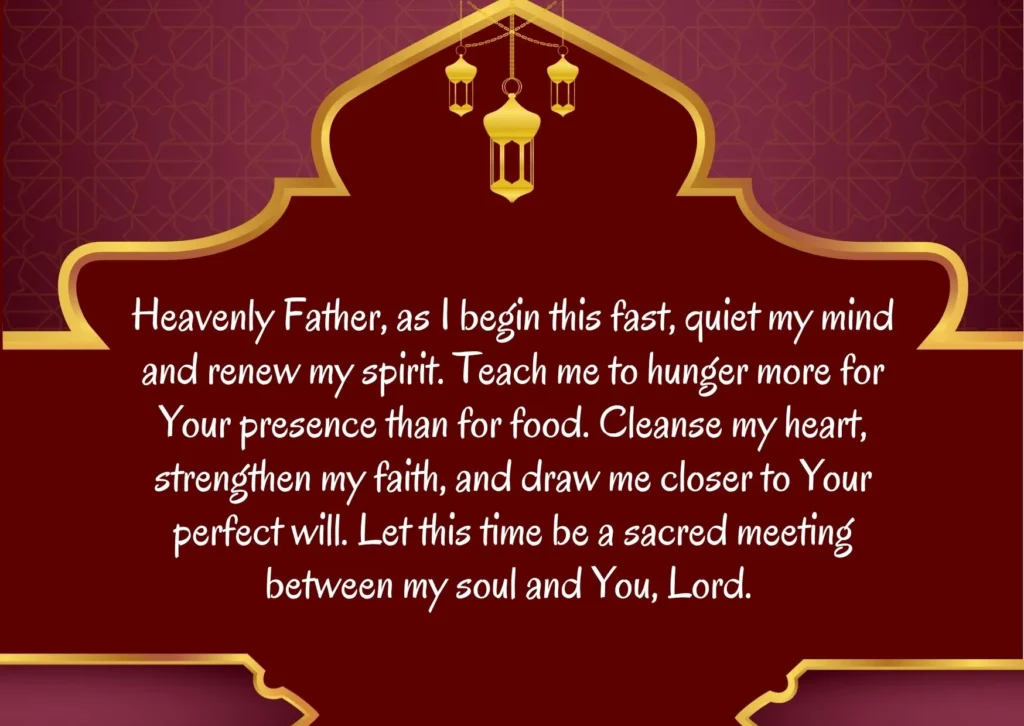
What Does the Bible Say About Fasting?
Fasting, in the Bible, is not a rule or command that every believer must follow but it is a powerful and meaningful spiritual practice that helps us draw closer to God. According to Scripture, Christian fasting means setting aside something physical, like food or comfort, to focus completely on God and His will.
The Bible shows that fasting has always been linked with prayer, humility, and repentance. In the book of Acts 13:2–3 (NIV), the early church fasted and prayed before making important decisions:
“While they were worshiping the Lord and fasting, the Holy Spirit said, ‘Set apart for me Barnabas and Saul for the work to which I have called them.’ So after they had fasted and prayed, they placed their hands on them and sent them off.”
Jesus also taught about fasting in Matthew 6:16–18 (NIV). He said that when we fast, we should do it quietly and sincerely, not to show off before others but to seek God in private.
In Isaiah 58, God reminds His people that true fasting is not only giving up food, but also showing kindness, helping others, and living righteously.
So, the biblical fasting meaning is deeper than just skipping meals. It’s about turning away from worldly distractions and turning your heart fully toward God. Through fasting and prayer in the Bible, we learn how to renew our spirit, seek divine direction, and grow in faith.
20 NIV Bible Verses About Fasting and Prayer
A Simple Prayer Before Fasting and Prayer
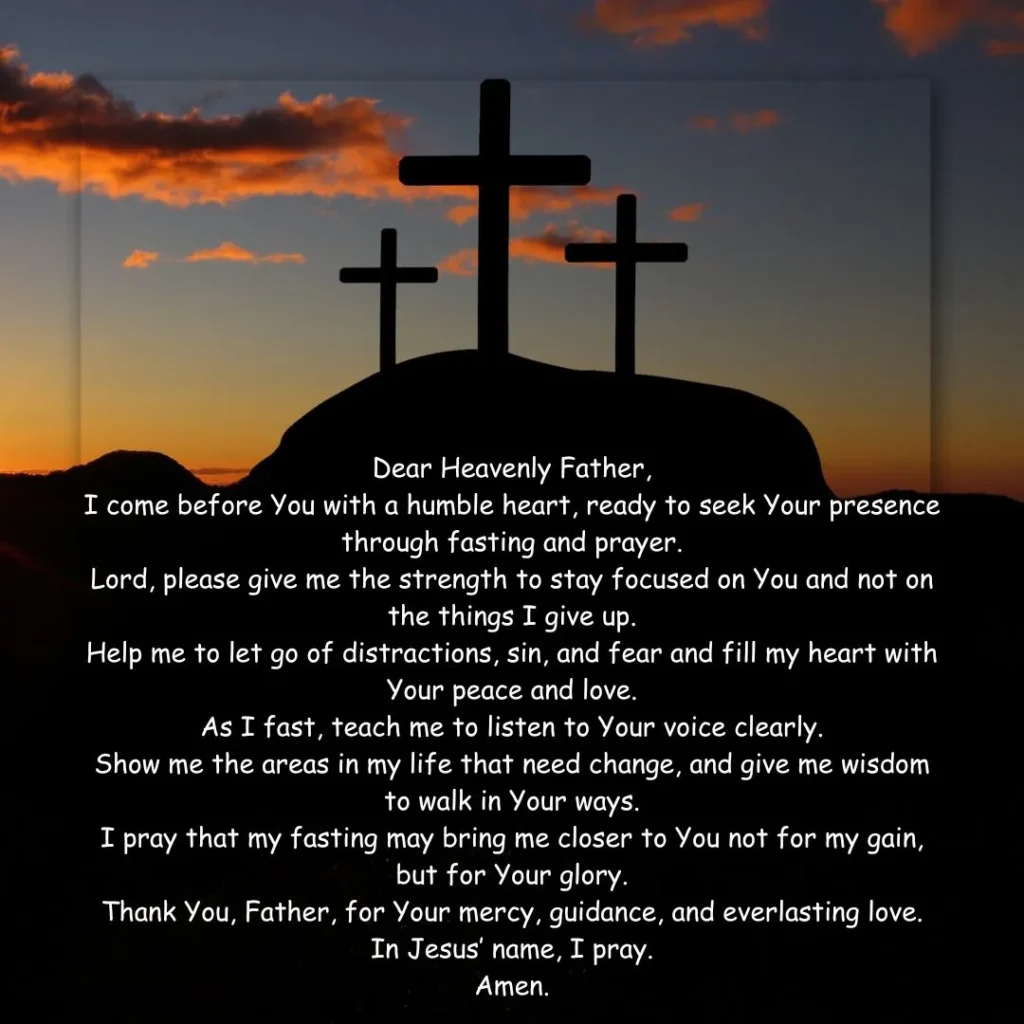
Prayer for Strength and Guidance During Fasting
Dear Heavenly Father,
I come before You with a humble heart, ready to seek Your presence through fasting and prayer.
Lord, please give me the strength to stay focused on You and not on the things I give up.
Help me to let go of distractions, sin, and fear and fill my heart with Your peace and love.
As I fast, teach me to listen to Your voice clearly.
Show me the areas in my life that need change, and give me wisdom to walk in Your ways.
I pray that my fasting may bring me closer to You not for my gain, but for Your glory.
Thank You, Father, for Your mercy, guidance, and everlasting love.
In Jesus’ name, I pray.
Amen.
1. Exodus 34:28 — Moses fasted forty days and nights
Moses stayed with the Lord for forty days without eating or drinking while he received God’s words. This fast shows deep, focused time with God when seeking revelation or direction.
Application: When you need clarity, set aside distraction and spend focused time in prayer and Scripture.
Key Lesson: Fasting prepares your heart to receive God’s Word.
2. Deuteronomy 9:9 — Moses’ repeat fast on the mountain
Again Moses fasted forty days as he interceded for Israel and met with God. The repetition shows fasting as part of serious covenant moments.
Application: Use fasting when you face decisions that affect others, asking God for wisdom and mercy.
Key Lesson: Fasting accompanies intercession and stewardship.
3. Judges 20:26 — National fasting and weeping
Israel fasted, wept, and sought the Lord before going into battle and judgment. Fasting here was communal repentance and seeking God’s help.
Application: In community crises, gather to pray and fast together for guidance and unity.
Key Lesson: Corporate fasting brings communities before God in humility.
4. 2 Samuel 12:15–16 — David’s fast for his sick child
David fasted and pleaded with God on behalf of his child. The fast was mixed with deep grief and intercession.
Application: When someone you love is in need, fasting intensifies prayer and shows heartfelt dependence on God.
Key Lesson: Fasting deepens intercessory prayer in times of sorrow.
5. 1 Kings 21:25–29 — Ahab’s fast of humility
After receiving judgment, Ahab humbled himself by fasting and wearing sackcloth; God responded to his humility.
Application: True repentance and humility during fasting can change God’s dealings with us.
Key Lesson: Humble fasting can lead to divine mercy.
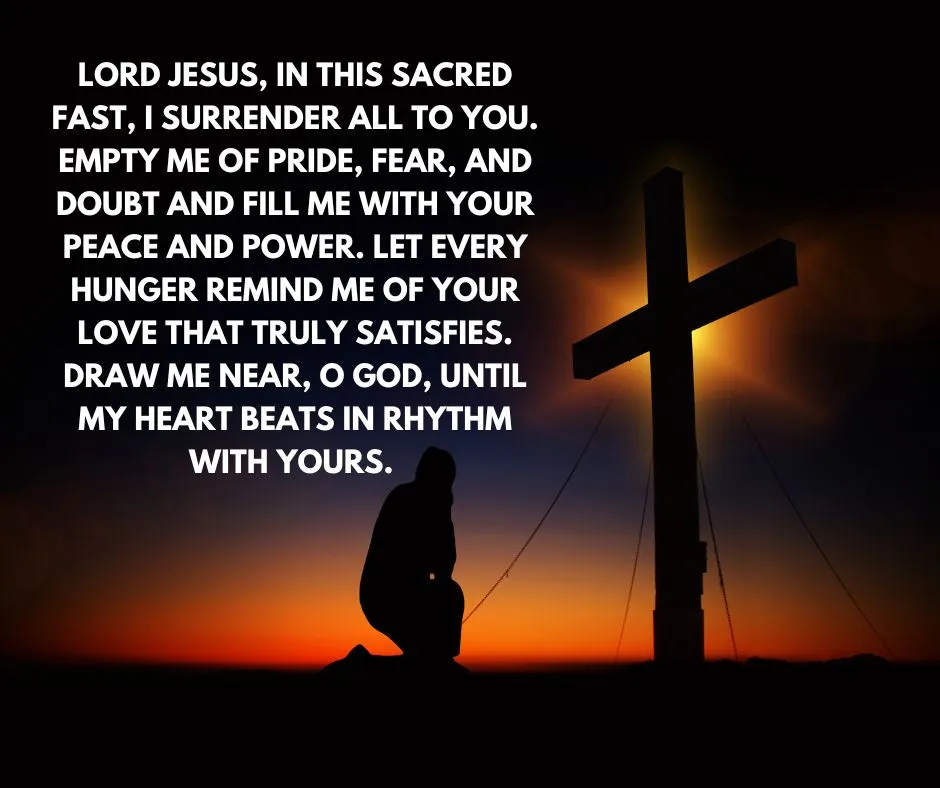
6. 2 Chronicles 20:3–4 — Jehoshaphat proclaims a fast
Jehoshaphat called the nation to fast and seek the Lord when facing a vast army. The fast led people to seek God together.
Application: When overwhelmed, call others to pray and fast God often acts when a people seek Him.
Key Lesson: Fasting unites a people to seek God’s help.
7. Ezra 8:21–23 — Fast for safe travel
Ezra proclaimed a fast to ask God for protection on a dangerous journey, and God answered. The fast was practical trust in God’s care.
Application: Use fasting when undertaking major steps, asking God for guidance and safety.
Key Lesson: Fasting expresses dependence on God for journeys and transitions.
8. Nehemiah 1:4 — Nehemiah’s fasting and confession
Nehemiah mourned, fasted, and prayed for his people before acting to rebuild Jerusalem. His fast was full of confession and petition.
Application: Begin major spiritual tasks with fasting and confession to align your heart with God’s will.
Key Lesson: Fasting prepares leaders for faithful action through repentance.
9. Esther 4:15–16— Esther’s three-day fast
Esther asked the Jews to fast for her before she risked approaching the king. The fast was corporate, urgent, and faith-filled.
Application: In moments of bold obedience, call others to prayer and fasting for courage and favor.
Key Lesson: Faithful fasting can precede bold action for God’s kingdom.
10. Psalm 35:13 — Fasting in compassion
David fasted for the sake of others when they were in trouble. His fasting expressed grief and intercession for people he loved.
Application: Fast to express sorrow and to intercede for those who suffer.
Key Lesson: Fasting channels compassion into prayer.
11. Isaiah 58 — True fasting defined
Isaiah warns against empty ritual fasting and teaches that true fasting shows justice, mercy, and care for the oppressed. God honors practical love, not showy piety.
Application: Pair fasting with actions that help others feed the hungry, free the oppressed, and act justly.
Key Lesson: True fasting must be joined with righteous living and mercy.
12. Daniel 9:3 — Daniel’s fast for repentance
Daniel turned to the Lord with prayer and fasting as he confessed the nation’s sins. His fast accompanied deep repentance and petition.
Application: Use fasting in seasons of corporate or personal confession to seek God’s forgiveness and restoration.
Key Lesson: Fasting accompanies confession and urgent prayer.
13. Daniel 10:2–3 — Daniel’s three-week fast (Daniel Fast)
Daniel refrained from rich food for three weeks to seek understanding and revelation. This fast focused on spiritual clarity.
Application: A focused, simple diet (Daniel Fast) can sharpen spiritual attention for specific needs.
Key Lesson: Deliberate fasting focuses the mind for spiritual breakthroughs.
14. Jonah 3:5–10— Nineveh’s citywide fast and repentance
When Nineveh repented and fasted, God saw their change and withheld judgment. Their fast led to corporate transformation.
Application: Genuine repentance coupled with fasting can turn God’s mercy toward a nation or community.
Key Lesson: Corporate repentance through fasting can bring national renewal.
15. Matthew 4:1–4 — Jesus’ forty-day fast in the wilderness
Jesus fasted in the wilderness before beginning His public ministry, showing dependence on God’s word and strength.
Application: Before major spiritual seasons, follow Christ’s example: fast, pray, and strengthen reliance on Scripture.
Key Lesson: Fasting strengthens spiritual resilience and dependence on God.
16. Matthew 6:16–18 — Jesus teaches private fasting
Jesus instructs believers to fast quietly, not to display piety. The Father sees what is done in secret and rewards true humility.
Application: Keep fasting humble and private; avoid seeking human praise.
Key Lesson: Fasting is a private discipline before God, not a public display.
17. Luke 2:36–37 — Anna’s life of fasting and worship
Anna served God with fasting and prayer night and day and spoke about the child Jesus. Her life was a witness of constant devotion.
Application: Cultivate a regular rhythm of prayer and fasting as a lifestyle of worship and testimony.
Key Lesson: Consistent fasting and prayer accompany lifelong devotion.
18. Acts 13:2–3 — Church fasts before commissioning leaders
The church at Antioch fasted and prayed before sending Barnabas and Saul on mission; the Spirit led them in the call.
Application: Use corporate fasting when making major ministry decisions; seek the Holy Spirit’s direction.
Key Lesson: Fasting helps communities hear God’s guidance for mission.
19. Acts 14:23 — Elders appointed with prayer and fasting
Paul and Barnabas appointed elders after prayer and fasting, entrusting leaders to the Lord. Fasting marked major church decisions.
Application: Combine prayer and fasting when choosing or commissioning leaders to seek God’s will.
Key Lesson: Fasting accompanies wise, prayerful leadership decisions.
20. 1 Corinthians 7:5 — Fasting beyond food (temporary abstinence)
Paul mentions couples may abstain from sexual relations for a time to devote themselves to prayer showing fasting can mean giving up more than food.
Application: Fast from activities or comforts that distract you so you can focus fully on prayer.
Key Lesson: Fasting includes any temporary sacrifice to focus on God.
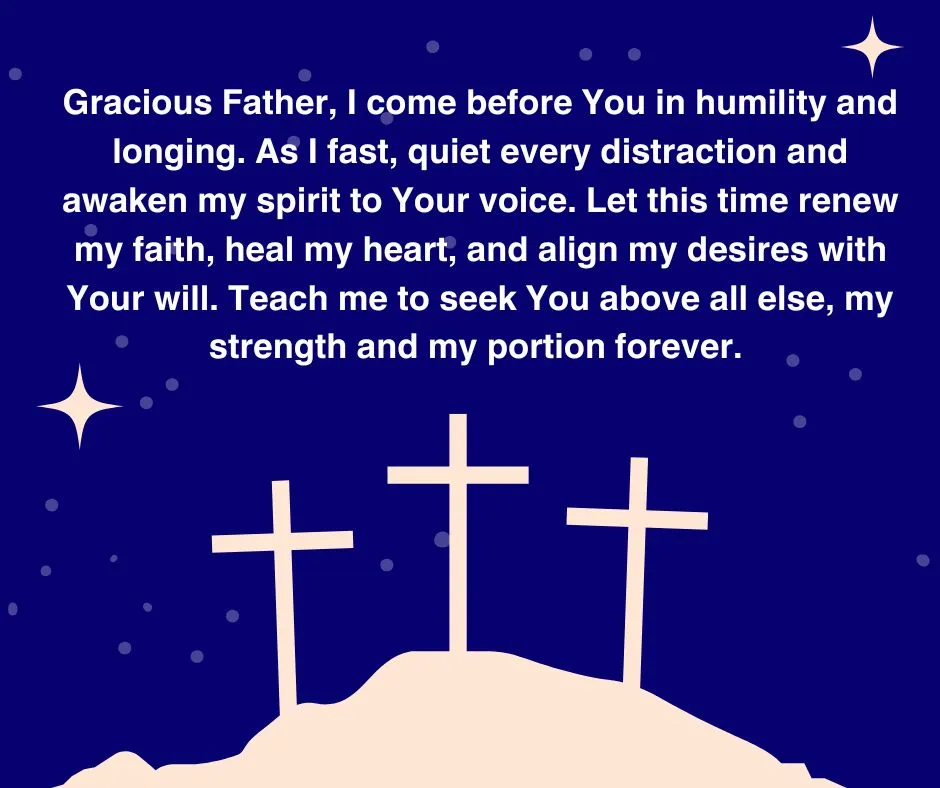
Isaiah 58 — The Heart of True Fasting
Fasting was never meant to impress God or people it was meant to change our hearts. In Isaiah 58, God speaks strongly to His people who were fasting outwardly but living selfishly. They stopped eating food, wore sackcloth, and bowed their heads, yet they still fought, mistreated others, and ignored the needy. God told them clearly: this is not the kind of fasting that brings His favor.
The people wanted blessings without obedience. They thought skipping meals could replace a humble heart. But spiritual fasting is not about empty stomachs it’s about a surrendered spirit. God’s rebuke reminds us that real fasting is a lifestyle of love, justice, and mercy. It’s about drawing closer to Him by caring for others.
In Isaiah 58:6–7, the Lord defines the true fasting meaning:
“Is not this the kind of fasting I have chosen: to loose the chains of injustice, to untie the cords of the yoke, to set the oppressed free, and to break every yoke?”
True fasting goes beyond food. It opens our eyes to others’ pain and moves us to act. When we fast for show, our prayers stop at the ceiling. But when we fast to serve, forgive, and show kindness, heaven listens. That’s when we experience fasting for God’s favor not as a reward we earn, but as the overflow of a pure heart that pleases Him.
Practical Application
Today, Isaiah 58 still speaks loudly to believers. Fasting is powerful, but it must be matched with a heart of compassion. When you fast, let it move you to:
- Serve others: Share food with the hungry, help someone struggling, or support a ministry that lifts the poor.
- Break selfish habits: Use your fasting time to let go of pride, bitterness, or distraction.
- Pray for justice: Lift up those who face unfair treatment or oppression; ask God to bring peace and freedom.
- Walk humbly: Keep your focus on God, not on showing others what you’re doing.
When fasting leads to love in action, that’s when it touches heaven. True fasting changes you from the inside out it fills you with joy, renews your faith, and draws you closer to God’s heart.
Types of Biblical Fasting
Below are some of the main types of biblical fasting found in Scripture. Each has a unique purpose and duration, but all aim to draw believers closer to God.
| Type | Example | Scripture | Duration |
|---|---|---|---|
| Complete Fast | Moses fasted without food or water in God’s presence. | Exodus 34:28 | 40 days |
| Partial Fast | Daniel avoided rich food, meat, and wine while seeking God’s understanding. | Daniel 10:2–3 | 21 days |
| Corporate Fast | Israel fasted together for repentance and guidance. | Joel 2:15 | 1 day |
| Non-food Fast | Paul mentions couples temporarily abstaining from intimacy for prayer. | 1 Corinthians 7:5 | Varies (prayer-focused) |
Each type of fast carries a spiritual goal whether it’s seeking revelation, showing repentance, or strengthening faith. What matters most is not the form, but the heart behind it.
How to Fast According to the Bible?
Fasting is a beautiful way to humble yourself before God and grow spiritually. If you’re wondering how to fast according to the Bible, here’s a simple guide to begin with faith and wisdom:
1. Prepare Spiritually and Physically
Pray before you start. Let go of anger or distraction. If you have health issues, talk to your doctor first.
2. Set a Purpose
Know why you’re fasting for breakthrough, repentance, or seeking direction. Clear purpose keeps you focused.
3. Pray and Read Scripture
Use mealtime for prayer, worship, or reading God’s Word. This is how your spirit grows stronger.
4. Stay Humble and Private
As Jesus said in Matthew 6:16–18, fast quietly. Don’t do it to show others do it to connect with the Father.
5. Break the Fast Gently
End your fast with light, healthy food and a thankful heart for what God has taught you.
Fasting isn’t just skipping food it’s choosing to focus completely on God. Even one day of sincere fasting can realign your heart with His will.
7 Benefits of Fasting and Prayer
Fasting and prayer are more than spiritual habits they’re powerful tools that open your heart to God’s presence and purpose. When you fast with the right attitude, amazing things happen in your walk with Christ. Here are seven beautiful benefits of fasting and prayer that the Bible reveals:
1. Spiritual Clarity
When you fast, distractions fade, and your heart becomes sensitive to God’s voice. You begin to hear Him more clearly through Scripture and prayer.
2. Humility Before God
Fasting humbles your soul. It reminds you that everything you have comes from God. In weakness, you learn dependence and surrender.
3. Strengthened Faith
Each time you resist comfort and turn to prayer, your faith grows stronger. Fasting teaches you to trust God’s strength instead of your own.
4. Breakthroughs and Deliverance
Many believers experience spiritual and emotional breakthroughs while fasting. It clears away spiritual heaviness and brings freedom through prayer.
5. Deeper Intimacy with God
As you fast, you spend more time in worship, reading Scripture, and resting in His presence. You begin to feel His peace and nearness in a personal way.
6. Repentance and Renewal
Fasting softens the heart, helping you recognize sin and turn back to God. It’s a time of cleansing and fresh surrender.
7. Guidance from the Holy Spirit
Throughout Scripture, believers fasted before making big decisions (Acts 13:2–3). Fasting opens your mind to divine direction and Holy Spirit wisdom.
Conclusion
The Bible reminds us that fasting is not about food it’s about focus. Through these 20 NIV Bible verses about fasting and prayer, we learn that true fasting brings humility, clarity, and deeper intimacy with God. When you set aside distractions and turn your heart fully toward Him, amazing things begin to happen your faith strengthens, peace fills your heart, and your spirit grows closer to the Father.
Fasting is a sacred invitation to slow down, pray deeply, and let God transform your heart from within.
Which verse spoke to your heart today? Share your thoughts in the comments your testimony might encourage someone else’s faith journey.
FAQs:
Q1. What Bible verse to pray with during fasting?
Matthew 6:17–18 reminds us to fast humbly and seek God in secret, knowing He will reward us openly.
Q2. Why is fasting prayer powerful?
Because fasting helps silence the world and makes our hearts more sensitive to God’s voice.
Q3. How to pray and fast according to the Bible?
Pray with sincerity, avoid showiness, and focus on God’s presence instead of food or routine.
Q4. What are the promises of God for fasting?
Isaiah 58 promises healing, light, and God’s guidance to those who fast with a sincere heart.
If you want to deepen your prayer life even more, check out these 40 Powerful Prayers to Live a Christian Life with Bible Verses — they’ll help you stay spiritually strong while fasting.

